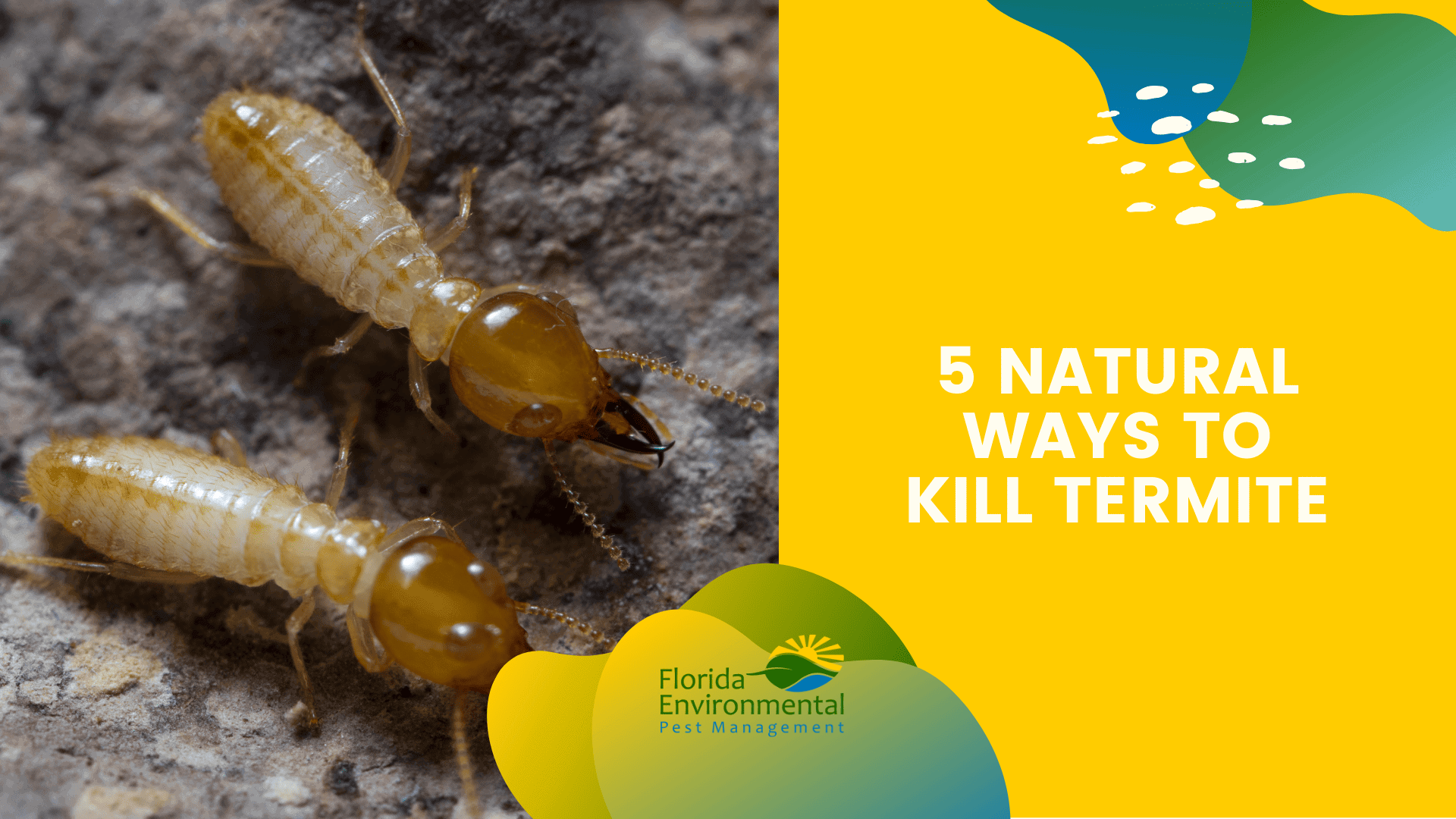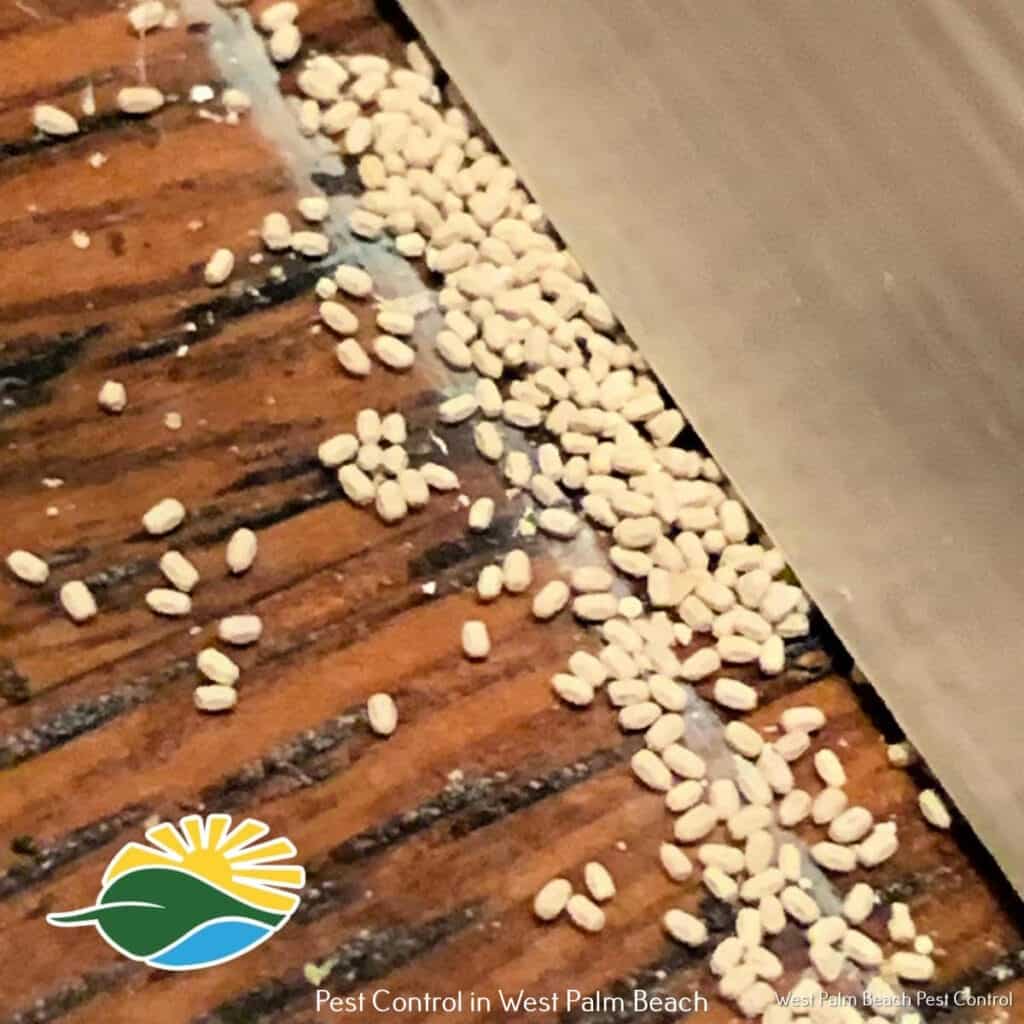Termites pose a significant threat to homes and structures, causing extensive damage that can be both financially and structurally burdensome.
The key natural ways to kill termites are using nematodes, vinegar, cardboard traps, boric acid, and diatomaceous earth.
Among all the natural ways, nematodes prove remarkably effective, as revealed in a 2006 study by Yu H., Gouge D. H., and Baker P. featured in the Journal of Economic Entomology.
What Are the 5 Natural Ways to Kill Termites?
1. Using Nematodes
Nematodes, specifically entomopathogenic ones, are highly effective in controlling termites naturally. These microscopic worms prey on termites by injecting bacteria into their bodies, leading to termite elimination.
Nematodes are a potent natural remedy due to their parasitic nature, targeting termites without causing harm to humans, pets, or wood structures. They can be easily obtained from various stores or online sources. The application involves placing these tiny worms in areas with termite infestation.
While nematodes can kill termites, their effectiveness may be limited due to the sheer numbers and determination of termites. Applying enough of the treatment to the entire colony poses difficulties. It’s essential to consider the size and location of the termite infestation when opting for natural control methods.
Incorporating nematodes into termite control practices aligns with natural and environmentally friendly approaches, offering an effective solution for addressing termite infestations.
2. Using Vinegar
White vinegar can kill termites. However, its effectiveness for complete termite control is limited due to factors like concentration and direct contact.
Vinegar’s key weapon is acetic acid, which disrupts termites’ delicate exoskeletons and dehydrates them. Direct contact with concentrated vinegar can kill individual termites. However, its effectiveness wanes quickly as it dilutes and loses potency.
Vinegar’s biggest drawback lies in its reach. It only tackles termites it directly contacts, leaving the hidden network of tunnels and the queen untouched. This means even eliminating visible termites won’t guarantee colony eradication.
However, vinegar might eliminate a small, surface-level infestation. But for established colonies, professional pest control remains the surest bet.
DIY solutions, like a mixture of white vinegar, lemon juice, and water, may offer a sustainable approach for localized termite treatment.
3. Cardboard Traps
Cardboard traps are an effective method for naturally killing termites. To create a cardboard bait system, place it in the most affected areas, allowing termites to infest it, and later remove and burn the cardboard to eliminate trapped termites.
They primarily target subterranean termites, attracted to the cellulose in moist cardboard. Drywood termites, however, have different food preferences.
While termites might feed on the trap, it’s unlikely to eliminate the entire colony hidden underground. They serve more as monitoring tools than eradication methods.
Combining this with professional poison treatment enhances the strategy’s efficacy. Consider attempting the cardboard trap multiple times for sustained effectiveness.
4. Using Boric Acid
Boric acid can kill termites, but its effectiveness depends on several factors. Boric acid is more effective on dry wood termites living within the wood, increasing their exposure to treated areas. Direct application or bait stations with boric acid can be effective for smaller infestations.
But against subterranean Termites: Less effective. These termites live underground and access wood through mud tubes, making it harder to ensure they contact the boric acid.
Boric acid takes time to show its effect and only the termites exposed will be affected leaving the colony untouched.
While boric acid offers a natural, targeted approach, it’s best suited for preventative measures or small, localized dry wood termite infestations. For extensive infestations, especially subterranean termites, professional pest control with targeted treatments remains the safest and most effective solution.
5. Using Diatomaceous Earth
Diatomaceous Earth (DE) is a proven, non-toxic solution for naturally eliminating termites. By sprinkling DE in affected areas, dehydrates and dries out termites, offering an effective and safe method for pest control.
Additionally, mix DE with water to paint over wooden structures as a preventive measure.
DE is composed of fossilized algae, and acts as a barrier when applied to the foundation, walls, ceilings, and floors, deterring termites from invading your home. Regularly check and maintain the DE application to ensure its effectiveness in preventing termite infestations.
While DE is highly helpful, it may not entirely stop all types of termites, so vigilance and additional preventive measures may be necessary.
Some more DIY home remedies are below:
- Orange oil: Contains d-limonene, which is deadly to termites, dissolving their exoskeletons and causing dehydration when applied directly or injected into infested wood.
- Neem oil: Disrupts termite molting and reproductive systems, limiting damage while awaiting professional help.
- Soap and water solutions: Form a seal around termites and damage eggs, temporarily suffocating them, but repeated applications are necessary.
How Effective Are DIY Home Remedies for Termite Treatments?
The effectiveness of DIY home remedies for termites, including borax, diatomaceous earth, orange oil, neem oil, wet cardboard traps, and soap and water solutions, is generally limited. While these remedies may kill small termites directly treated, they are unlikely to eradicate a full infestation.
For lasting protection and complete colony extermination, it is recommended to seek professional help, either through extermination or installing termite-proof barriers in the soil around the home.
DIY Termite Control vs Professional Pest Control
| Aspect | DIY Pest Control | Professional Pest Control |
| Application Process | Applied at your leisure, convenient for personal schedules. | Exterminators with expertise rapidly detect and treat the issue. |
| Cost | Usually less expensive, buying chemicals from the supermarket. | It can be more expensive, but provides assurance and long-term results. |
| Expertise and Knowledge | Limited understanding of chemicals; may pose risks. | Exterminators are well-trained, ensuring proper chemical use. |
| Health and Safety | Chemicals may carry risks, and potential harm to humans, pets, and plants. | Minimized risks, professionals choose and apply chemicals safely. |
| Effectiveness | May be convenient, but less effective for severe infestations. | More effective due to expertise, offering long-term solutions. |
What Preventive Measures Can Keep Termites from Home Away?
The following preventive measures can help keep termites away from your home:
- Reduce Soil-to-Wood Contact:
- Remove cellulose-based debris from around the foundation.
- Stack firewood at least 20 feet away and raise it off the ground.
- Create a 4-inch barrier between mulch and your home.
- Keep Plants Away:
- Maintain short, regularly cut grass near your home.
- Consider using pine needles, pea gravel, or non-organic material as a barrier.
- Manage Moisture Around Foundation:
- Ensure storm drains empty away from the foundation.
- Check roofing, flashing, and gutters for leaks.
- Direct condensation away from the home, use vapor block barriers and consider a dehumidifier.
- Remove Attractive Materials:
- Keep dead trees, rotting wood, and construction leftovers away.
- Avoid leaving newspapers, cardboard boxes, or paper products around your property.
- Seal Gaps and Cracks:
- Seal cracks around water and gas lines with caulk or foam sealant.
- Patch foundation cracks using cement or concrete patching compound.
- Replace damaged wood with termite-resistant materials.
- Prevent Swarming During Spring:
- Turn off outdoor lights at night to avoid attracting flying termites.
- Relocate lights away from doors and windows and repair roof and eaves gaps.
- Check and patch window screens.
- Regular Termite Inspections:
- Have your home annually inspected by a trained termite professional to identify potential access points or early signs of infestation.
Remember, consulting with a termite prevention professional is advisable for the best and most effective strategies tailored to your unique home. Contact Florida Environmental Pest Management now.





